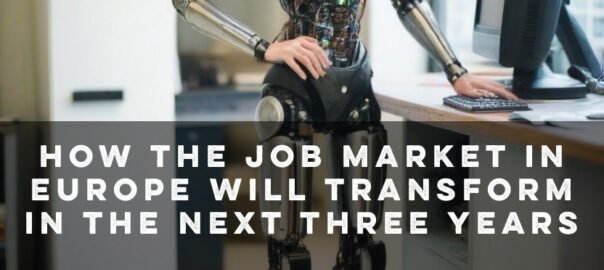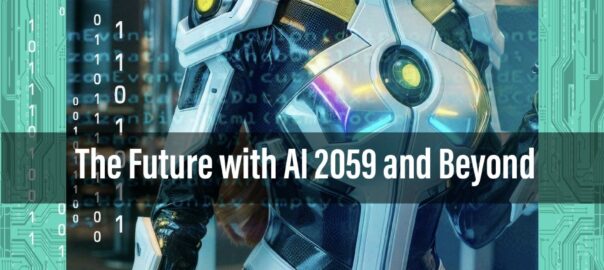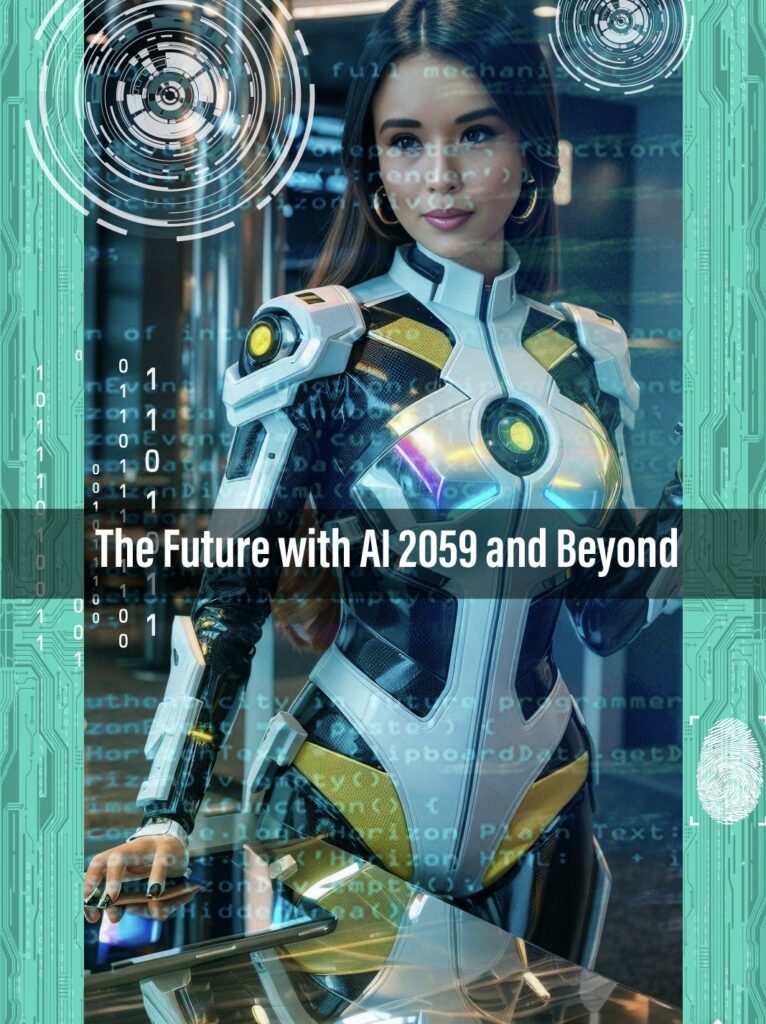Back in the late 80s, I remember the thrill of playing with my first computer. It had a black and white monitor, and I had to use these huge floppy disks. I spent countless hours tinkering with it, developing a simple game that made me incredibly proud. I even created a data sheet to help my parents’ business, reducing the time they spent on clerical work. It was a time of discovery and innovation, where every new piece of technology felt like a leap forward. Fast forward to today, and I can’t help but feel a bit uneasy. AI is taking over tasks I once excelled at. Can I compete with AI, or perhaps I might lose a job in the future? I’m an analytical and creative thinker, but it looks like this never-ending technological development might outpace me.
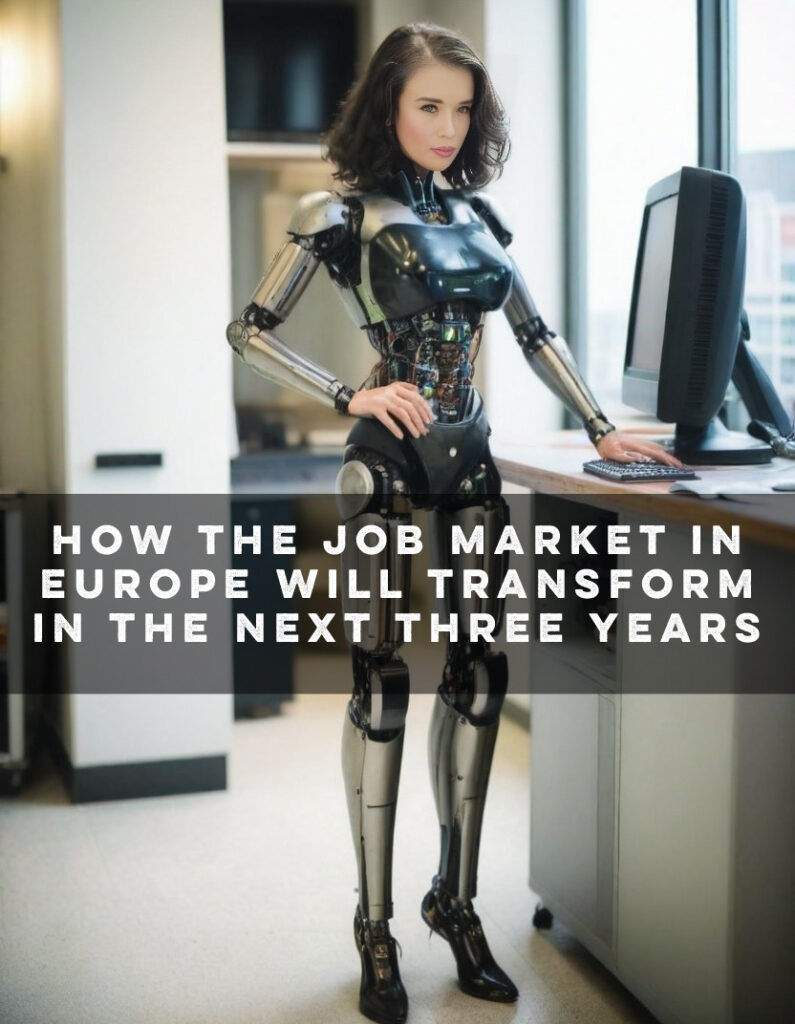
Increased Automation and AI Integration:
Automation and AI are set to revolutionize many industries in Europe by taking over repetitive and data-driven tasks. By 2027, it’s projected that around 42% of business-related tasks will be automated. This shift will significantly impact roles in clerical work, data entry, and other manual processes, leading to substantial job displacement in these areas.

Impact on Employment in Europe:
The adoption of AI and automation technologies will lead to significant job losses in several European sectors. Roles that involve routine and repetitive tasks, such as clerks, data entry operators, and administrative support workers, are at the highest risk. A report by the European Commission suggests that up to 30% of jobs in some EU countries could be at risk of automation by the mid-2030s.
Job Displacement Estimates:
Studies suggest that millions of jobs across Europe could be automated in the next decade. For example, in Germany, it is estimated that up to 12 million jobs could be affected by automation by 2030. In the UK, up to 1.5 million jobs are at risk of being automated by 2030, particularly in sectors like retail and manufacturing. According to the World Economic Forum, by 2025, technology is expected to create 97 million new jobs globally but will also displace around 85 million existing jobs. This means there will be a net gain in job creation, but the transition could still be disruptive for many workers.
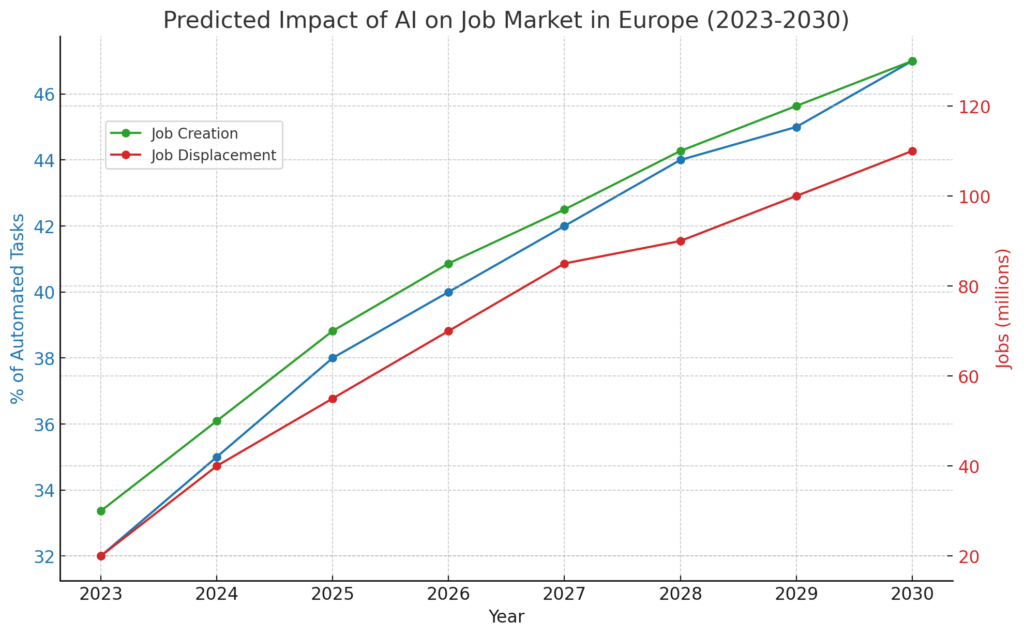
Impact on Denmark:
Denmark, known for its advanced technological infrastructure and high adoption rate of digital solutions, is also facing significant changes. The Danish labour market, characterized by its flexibility and high degree of automation in industries like manufacturing and logistics, is expected to see shifts. According to studies, Denmark could see up to 800,000 jobs affected by automation by 2030. This includes both job displacement in routine manual and clerical tasks and the creation of new roles in tech-driven fields.
Challenges for Workers:
The rapid pace of technological change presents significant challenges for the European workforce. Many workers may find it difficult to adapt quickly enough, especially those in mid-career or nearing retirement. The need for continuous learning and skill development is more critical than ever, but access to adequate training remains a barrier. Only about half of the European workforce currently has access to necessary upskilling opportunities. Furthermore, the European Centre for the Development of Vocational Training (Cedefop) highlights that digital skills are unevenly distributed across the EU, exacerbating the risk of job displacement for workers lacking these competencies.
Sector-Specific Impacts:
- Manufacturing: In countries like Germany and Italy, the manufacturing sector is expected to see a significant transformation. Automation will likely lead to the displacement of many assembly line jobs, but also a demand for high-skilled technicians to maintain and develop automated systems.
- Retail: The retail sector across Europe is also at risk, with many cashier and sales associate roles being automated through self-service technology and AI-driven customer service solutions.
- Transportation: The adoption of autonomous vehicles and AI in logistics could reduce the need for drivers and logistics coordinators, significantly impacting employment in this sector.

In summary, while AI and automation will bring efficiency and innovation, they also pose a substantial threat to current job roles in Europe, including Denmark, potentially leading to significant job displacement and unemployment. Adaptability and continuous skill development will be essential for workers to remain competitive in this evolving job market. The challenge for European countries will be to manage this transition effectively, ensuring that the workforce is equipped with the skills needed for the future.
References:
- “Artificial Intelligence and the Future of Work.” European Commission. Link
- “Digital Skills in the EU Labour Market.” Cedefop. Link
- “The Future of Jobs Report 2020.” World Economic Forum. Link
- “Employment Projections Home Page.” U.S. Bureau of Labor Statistics. Link
- “The Future Of Jobs In 2024 And Beyond.” Nexford University. Link
- “Predictions for 2027.” Quantumrun. Link
